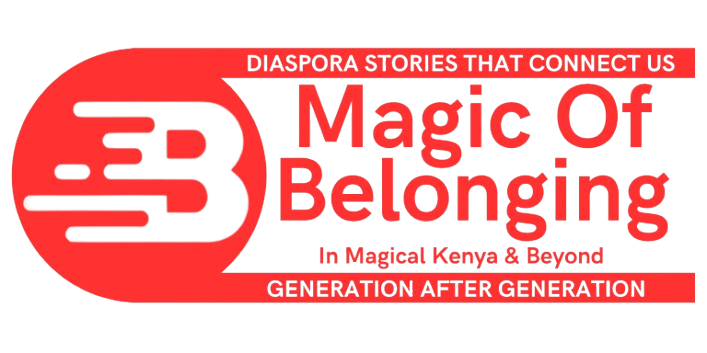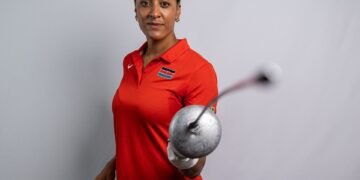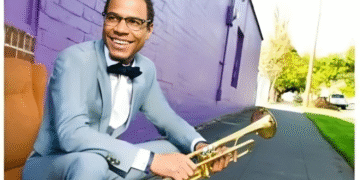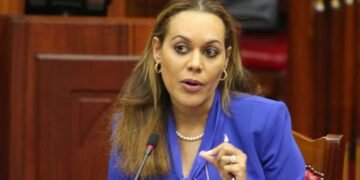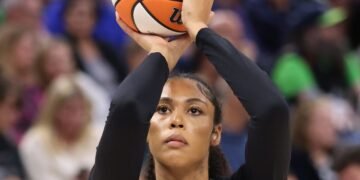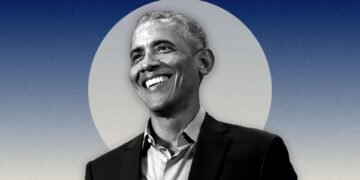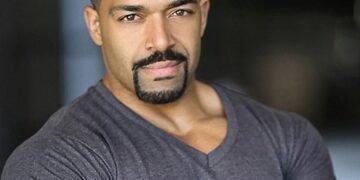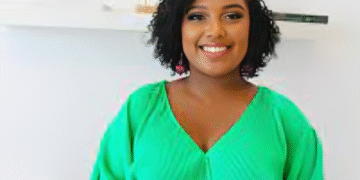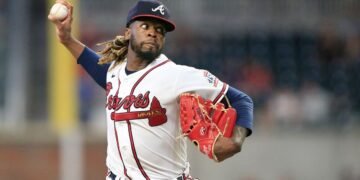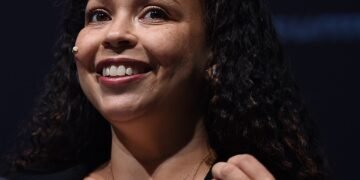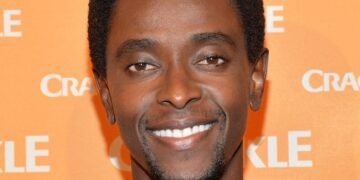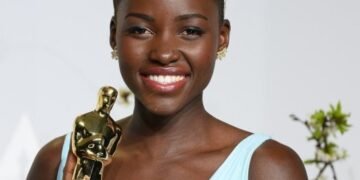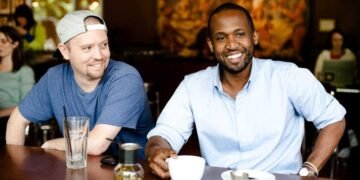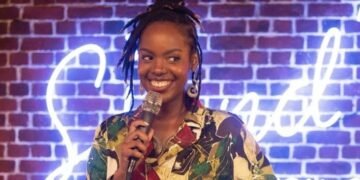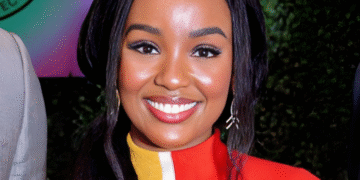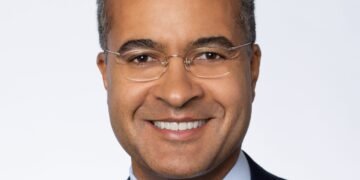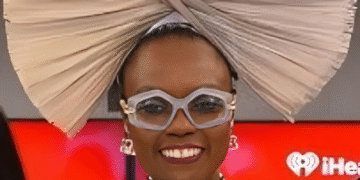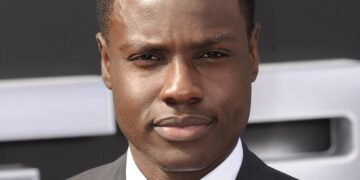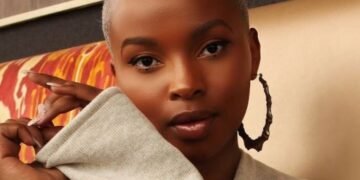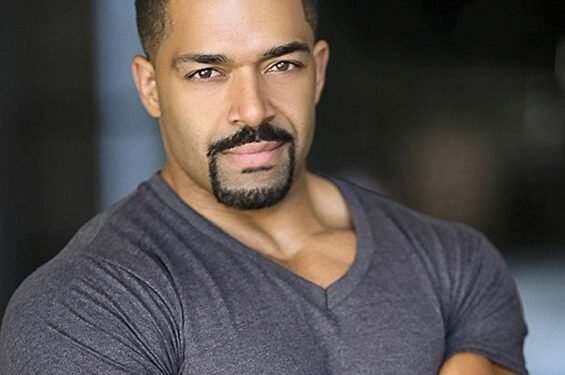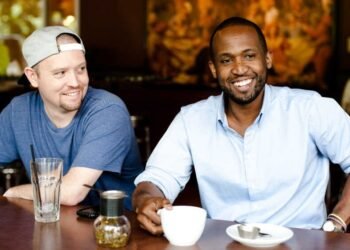On a warm graduation day at the University of Illinois, the cameras flashed, capturing more than just academic triumph. David Otunga stood flanked by his parents—his father Moses, a towering intellectual from Kenya, and his mother Billie, a steadfast Midwesterner from Ohio. It was a portrait of possibility. Black robe. Proud smiles. A sense of something bigger quietly blooming between them.
That photo, simple as it was, would come to symbolize the duality David would carry all his life: American and Kenyan, Ivy League and WWE, courtroom and spotlight. His was never a straight path, but rather a tightrope walk across cultural thresholds—with his father’s legacy acting as both compass and fuel.
So David walked into Harvard Law School not for prestige, but to continue a story. Every case brief, every exam, became a meditation. A way to say, I carry you with me, Dad.
A Father’s Dream, A Son’s Inheritance
Moses Otunga grew up far from the polished halls of Harvard, in the rural hills of Kenya where books were sacred and education was liberation. Elders in his village whispered the name “Harvard” like it was a star too distant to touch—but Moses chased it anyway. He would never attend the Ivy League school himself, but he built an empire of knowledge: a Ph.D., two master’s degrees, a Certificate of Advanced Studies. Education was his oxygen.
In America, Moses fell in love with Billie, a white woman from Ohio, at a time when their union defied the rules of society and drew stares—and sometimes worse. Yet their love endured. They raised David in Elgin, Illinois, weaving stories of ancestral strength and modern resilience into the fabric of their son’s identity.
David admired his father with a quiet reverence. “He didn’t think he was smart enough to be a lawyer,” David once shared, still stunned. “That shocked me. He was the smartest man I knew.” It was that disbelief, that humble restraint, that nudged David toward law school. In secret, he took the LSAT, almost as a tribute to the father who didn’t dare dream it for himself.
Then tragedy struck.
Moses passed away unexpectedly—just as David was waiting to hear back from Harvard. The acceptance letter arrived days after the funeral.
“It was bittersweet,” David recalled. “I just wanted to see his face light up, just once.”
So David walked into Harvard Law School not for prestige, but to continue a story. Every case brief, every exam, became a meditation. A way to say, I carry you with me, Dad.
From Legal Briefs to Body Slams

Despite success at the prestigious law firm Sidley Austin, David felt something tugging. His father’s storytelling, the kind that once mesmerized village gatherings in Kenya, echoed in his own theatrical instincts. His passion for performance, honed through years of bodybuilding and idolizing Hulk Hogan, would not be silenced.
In 2007, David took the leap—stepping away from corporate law to chase the unknown. His mother’s voice reminded him: “Always have a fallback.” And he did. But now it was time to chase dreams the way Moses once had.
His break came unexpectedly when a niece submitted his audition tape for VH1’s I Love New York 2. Cast as “Punk,” David’s intelligence and physicality made him a standout. WWE noticed. Here was something new: a Harvard-educated powerhouse who could talk and wrestle with equal force.
In 2008, David began training with Florida Championship Wrestling. Unlike most newcomers, he walked with the bearing of a barrister. When he finally appeared on WWE’s main stage during the debut season of NXT, he embraced his full identity. He was the intellectual brawler. The Harvard heel. The man who weaponized legal jargon in promos and closed contracts in the ring.
His most iconic moment came as part of The Nexus, a group of rebellious upstarts who shocked the wrestling world by attacking established legends. David led with quiet fury—his calm confidence rooted not just in talent, but in bloodline.
As grueling as WWE’s global tours were, he never complained. “It’s nothing compared to what my parents endured,” he’d say, echoing that unshakable Kenyan grit.
The Father, The Advocate
David’s most important title wasn’t earned in courtrooms or wrestling rings. It came in 2009, when he became a father to David Jr., his son with Grammy-winning singer Jennifer Hudson. In their biracial family, David saw echoes of his own childhood—a living continuation of the bridge his parents had built.

He raised his son the way Moses raised him: with discipline, tenderness, and an unwavering emphasis on education. “I’m the grammar police,” he joked, turning even language into a teaching moment. He shared Kenyan artifacts and told stories of his father’s village. He spoke to David Jr. about African American heroes during Black History Month. He knew the power of knowing where you come from.
When his wrestling career ended in 2015, David pivoted once again—this time into acting, speaking, and advocacy. His performance in The Call alongside Halle Berry opened new doors, but it was his motivational keynotes that truly revealed the heart of the man.
In talks like “From Self-Conscious to Self-Confident,” he spoke to audiences across the country about identity, resilience, and how diversity isn’t a challenge—it’s a superpower. “I talk about my journey as a biracial man,” he told one crowd. “How my Kenyan father’s dream became my fuel.”
A Legacy Carried, A Circle Unbroken
In 2018, David shared a childhood photo on Instagram: his father holding him, just a baby, in strong Kenyan arms. “I grew up obsessed with being strong and earning degrees because of you,” the caption read.
That image—Moses cradling David—felt like the full arc of a generational story. The immigrant dream. The diasporic echo. The inheritance not of wealth, but of purpose.
Today, David Otunga remains a visible figure in media. As a WWE commentator, he combines law and sport with unique clarity. As a partner with groups like Boys & Girls Clubs, he champions education access. At home, he watches his teenage son flip through Muscle & Fitness magazines featuring his own face—just as he once admired Hulk Hogan and Moses.
A Warrior Between Worlds
David Otunga’s story is a tapestry of worlds intersecting: Kenyan and American, muscle and mind, father and son. He is proof that heritage doesn’t bind us—it frees us. That ancestral dreams don’t die with their dreamers—they rise again, reimagined in new generations.
And in David, we see a modern griot. A liminal warrior. A child of Kenya and America who walks confidently between identities—not torn, but whole.
As his father once reached across oceans in search of knowledge, David now reaches back across generations to remind us:
Belonging isn’t about choosing one world over another.
It’s about becoming the bridge.
